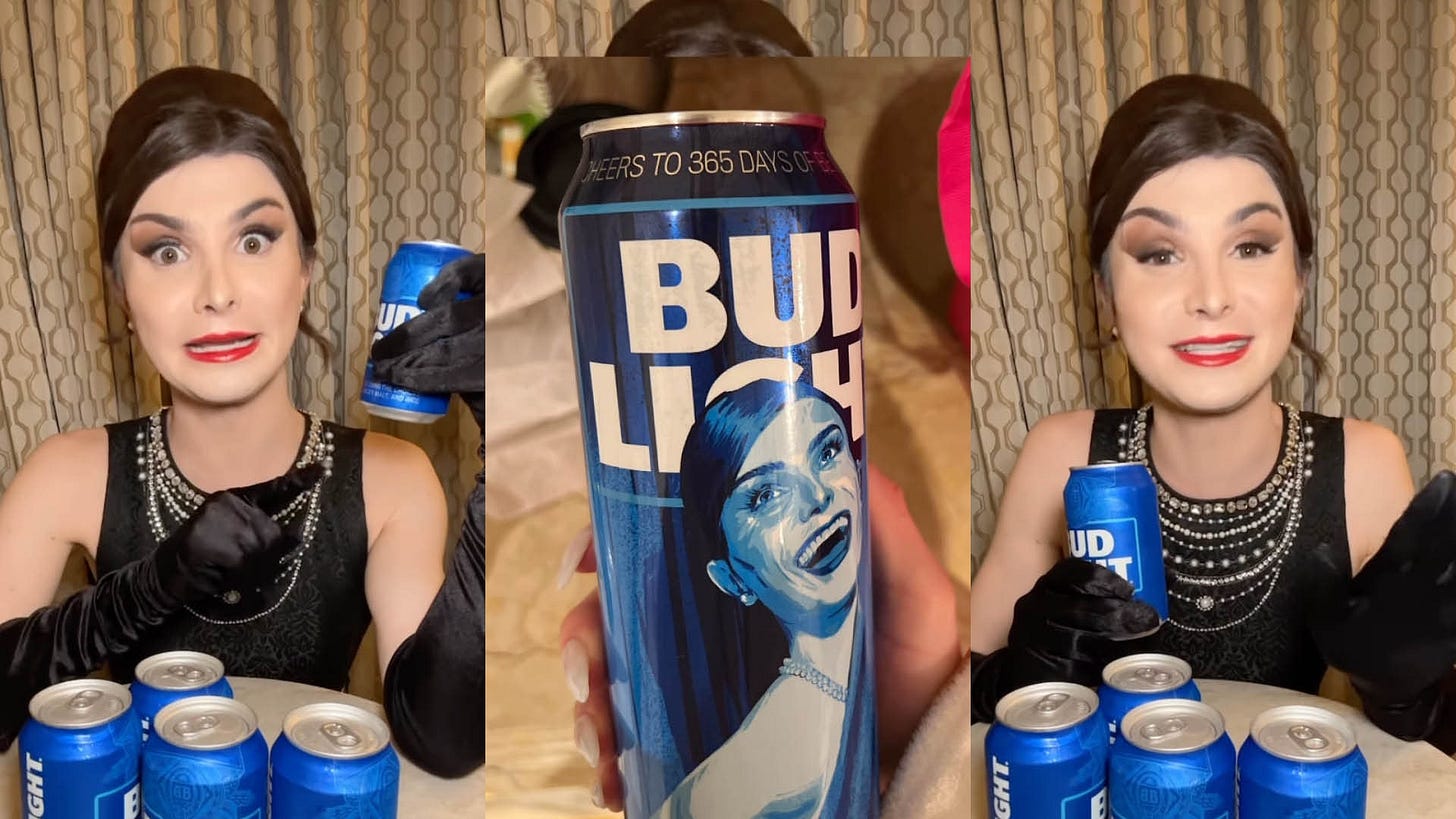Don't Be Bud Light
Anheuser-Busch CEO breaks all crisis communications rules over Dylan Mulvaney brand deal for transgender promo and beer sales plummet
I was surprised when the Anheuser-Busch CEO finally came out of hiding that he looks like someone who would drink Bud Light.
Brendan Whitworth is a telegenic, straight, white man in his 40s. Whitworth doesn’t look like the woke mob that is forcing us all to hear incessantly about transgender issues that affect a teeny tiny percent of the population. Yet, the CEO is breaking every rule of crisis communications to bow to the mob and sacrifice beer sales.
No apology, no regrets
Bud Light was the number one beer sold in America until the company made a “brand deal” with popular transgender influencer Dylan Mulvaney. Now the beer is down in sales by almost 30% compared to last year.
After three months of continued protests, Whitworth went on CBS News with Gayle King on Wednesday (watch below) seemingly to try to save his company. The CEO, wearing white sneakers with a blue suit, was clearly media trained not to say anything controversial.
Whitworth said the company would continue to support LGBTQ rights. He promised to listen to his customers better. He appealed for mercy for his employees and wholesalers affected by the beer boycott.
The PR team trained Whitworth too well. He refused to answer if he would do the same marketing shtick again with Mulvaney nor even concede that it was obviously a mistake. The CEO, who is a former Marine and CIA officer, made a lame attempt to fix his brand mess by saying of Anheuser-Busch:
It really is an American institution and, it’s to me, one degree of separation away from the United States — the American flag.
I don’t drink Bud Light (or any beer, too many carbs) and don’t participate in boycotts. But I don’t want the flag mixed up with this mess.
Not just one beer can
A rule of crisis communication is to get out all the facts that you know. Whitworth said on CBS the controversy was over “one can” that was “a gift.” That’s not true.
Mulvaney said on Thursday on TikTok that the brand deal included posting a “sponsored video.” If you don’t know, Mulvaney was a man who got famous for making TikTok videos showing transitioning to a woman over the past year. (I’ve half-heartedly googled to try to figure out if Mulvaney had THAT kind of surgery, but I don’t really want the details.)
The trans influencer said the company sent a personalized can of Bud Light to celebrate a year of “girlhood” as part of the deal. Mulvaney posted this video advertising the beer on Instagram on April 1:
Mulvaney promoted the beer as a “Bud Light Parter” and announced a March Madness giveaway. There was a second video of Mulvaney in a bathtub with cans of Bud Light.
It was obviously a marketing deal, and Whitworth should have explained it. Whitworth said that the company has been doing LGBTQ marketing since the last 1990s. CBS showed a rainbow bottle of Bud Light from 2019. But gay rights and transgender rights are not the same thing to many beer drinkers.
My Pronouns Are No/No
I logged into Linkedin and got prompted to put in my “pronouns.” I stopped scrolling. I felt my heart race. I didn’t think. I just took a screencap of it and posted it on Twitter with one word: “No.” They’ve gone too far.
Brew-ha-ha ignored
When in a crisis, it’s important to respond immediately. Whitworth went silent for a full month while all hell broke loose over the trans videos. While Aheuser-Busch was dark, Kid Rock posted this video shooting Bud Light cans with an AR-style rifle.
It took a full month for Whitworth to post this mealy mouth written statement about beer bringing people together. The CBS interview was much too late to fix the brand disaster.
Two execs at the company were put on leave (or some say fired) over the brew-ha-ha (get it?) The company launched a new summer PR campaign to supposedly appeal to its customers, but no one predicts a turnaround at this point.
.3%-5% transgender
When crafting a crisis communications plan, you determine who is your target audience. In the case of Bud Light, they need to reach the conservative men who stopped drinking their beer. Instead, the company is appealing to liberal kids.
This debate about gender rights is over a tiny percentage of people. We can see this in a recent Pew poll that 5% of adults under 30 say they are “trans or nonbinary” compared to merely 0.3% of those 50 and older. The kids say the numbers are increasing in younger age groups because they feel more comfortable being open about “gender fluidity”, but







